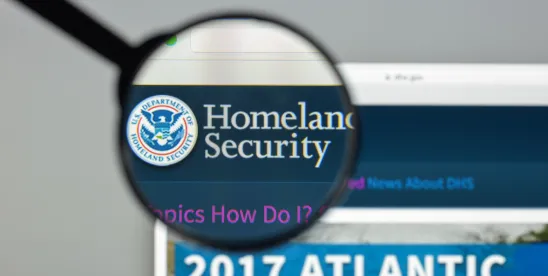On Aug. 28, the U.S. Department of Homeland Security (DHS) issued a Notice of Proposed Rulemaking (NPRM) seeking to amend existing regulations to limit the admission of foreign nationals holding the F (academic student), J (exchange visitor), and I (representatives of foreign information media) classifications to a fixed time period. Currently, F, J, and some I status holders have the flexibility of remaining in the United States for as long as they comply with the terms and conditions of their nonimmigrant classification (“D/S,” or “duration of status”).
DHS said the proposed rule addresses the significant increase in the volume of nonimmigrants in F, J, and I status over the past decades and the resulting challenge to the department’s ability to monitor these nonimmigrants’ compliance with the terms of their status.
Key Changes Proposed
- Replacing Duration of Status (D/S) – an open-ended period covering the full duration of their academic program or employment – with fixed admission periods.
- F and J visa holders would be admitted for the length of their program as stated on their I-20 or DS-2019 or four years, whichever is shorter.
- I visa holders would be admitted for the duration of their assignment, not to exceed 240 days, or 90 days for those from the People’s Republic of China (excluding Hong Kong and Macau).
- To continue beyond the established period, foreign nationals must apply for an extension of status with U.S. Citizenship and Immigration Services (USCIS) prior to their admission expiration date (240-day automatic extensions of stay and (where applicable) work authorization would be available for timely filed applications).
Additional Restrictions
- Reduced grace period: F-1 students would have 30 days post-program to depart, down from 60.
- F-1 students in English language programs: Limited to 24 months total.
- Public high school students: Limited to 12 months total.
- F-1 undergraduates: Restricted from changing majors or transferring to a different school in the first year unless granted an exception.
- F-1 graduates: Prohibited from changing majors from within the United States at any time during their program.
- No F-1 student can enter a second educational program at the same or lower level after completing the initial program.
Key Impacts
- No status extensions through the Student and Exchange Visitor Information System (SEVIS): F and J visa holders would no longer be able to rely on school-issued I-20 or DS-2019 updates alone to remain in status.
- Additional administrative compliance and financial burdens, including preparing and filing extension applications, paying the filing fees, and gathering additional documentation to justify the extension (e.g., academic delays, illness, natural disasters).
- Additional administrative steps, including biometric screening.
- Potential delays and gaps in academic programs and ability to travel internationally.
Other Notable Impacts
- Under the new rule, F, J, and I visa holders would begin accruing unlawful presence immediately after their authorized stay expires, as opposed to affirmative formal termination of their admission period. This may trigger three or 10-year bars on readmission depending on the duration of unlawful presence.
- The NPRM does not clearly address how program interruptions and reinstatement procedures would interact with fixed admission periods. Students who fall out of status due to a gap in their attendance may face dual hurdles of reinstatement through SEVIS update and a separate application for extension of status through USCIS.
Practical Takeaways
- DHS expects students to maintain status within the fixed admission period or seek an extension proactively. As such, students whose program timelines are disrupted would need to file an extension of status application with USCIS, including biometric data and supporting documentation
- Students on medical or personal leave may need to exit the U.S. and re-enter with a new visa, depending on the timing and USCIS adjudication. Students from countries with limited visa access or longer consular wait times may need to pay special attention to these situations and plan accordingly.
- Students seeking to remain in the U.S. after graduation (and practical training period) may not be able to remain in the country by entering another DHS-approved program at the same or lower level.
Advocacy and Support Efforts
Comments on the NPRM are accepted until Sept. 29, 2025.
Conclusion
The DHS NPRM proposes replacing the “duration of status” (D/S) model for F, J, and I visa holders with fixed admission periods, generally capped at four years or the length of the program, whichever is shorter. After this period, individuals must apply for an extension of stay through USCIS, which includes biometric screening and documentation of continued eligibility. The rule reduces the post-completion grace period to 30 days, limits F-1 students’ ability to change majors or attend multiple same-level programs, and introduces new rules of calculating unlawful presence.


 />i
/>i

